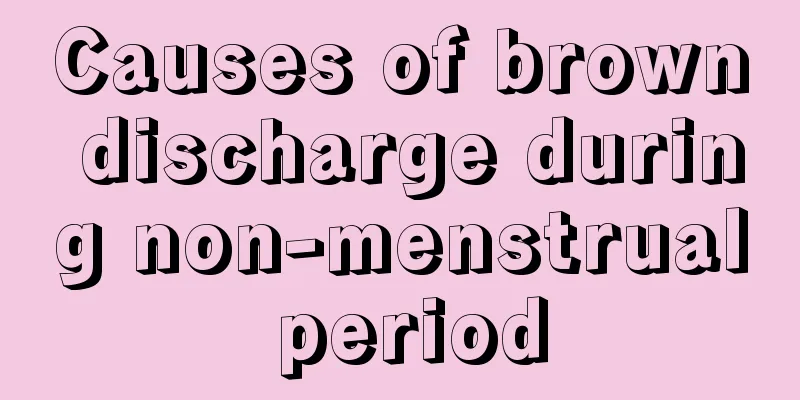My baby has a fever. How should I use antipyretics?

|
Author: Wurikhan People's Hospital of Inner Mongolia Autonomous Region Luo Xuan Inner Mongolia Autonomous Region People's Hospital Reviewer: Zhao Jie, Chairman of the Chinese Medical Association Clinical Pharmacy Branch, The First Affiliated Hospital of Zhengzhou University Chief Pharmacist Professor Fever refers to an abnormal increase in the baby's body temperature, generally defined as a rectal temperature ≥38.0℃ or an axillary temperature ≥37.5℃. Parents should not be anxious if the baby has a fever, because fever itself is not dangerous and will not "burn the brain". Fever is the body's response to "foreign enemies" and can help the body resist "invaders" to a certain extent. The baby's body temperature needs to be measured in the same part with the same thermometer. Keep the baby quiet when measuring the body temperature. Do not measure when the baby is crying, emotional, wearing thick clothes or after exercise, as there will be deviations. Closely observe the baby's condition and measure frequently to better understand the changes in the baby's body temperature. Figure 1 Copyright image, no permission to reprint 1. When the baby has a fever, care is very important Before we know what drugs we need to use, we should pay more attention to the care of the baby when he has a fever, such as drinking enough water, ensuring rest, eating some easily digestible food, doing oral care (gargling with salt water), etc., to minimize the discomfort of the baby when he has a fever. When the body temperature is less than 38.5℃, physical cooling methods need to be used to cool the baby down. Here is a reminder for parents, please do not use alcohol to wipe and cool down, so as to avoid allergic reactions or alcohol poisoning in the baby, and never use clothes or bedding to "cover sweat". During the fever period, if the baby has chills and other discomforts, clothes should be added appropriately. When the baby sweats after the fever subsides, the clothes should be appropriately reduced and replaced with dry clothes to ensure the baby's comfort after the fever subsides. 2. How should antipyretics be used correctly? 1. What are the antipyretic drugs for children? How should we choose? The main antipyretics recommended for children include acetaminophen and ibuprofen. Figure 2 Copyright image, no permission to reprint Note: Do not give ibuprofen extended-release tablets to your baby. Ibuprofen sustained-release tablets are antipyretic, analgesic, and anti-inflammatory drugs for children over 12 years old. They are not recommended for babies to reduce fever. Because they need to be swallowed whole, it is impossible to obtain the dosage for children, and there may be a risk of sudden release of a large dose of drug ingredients. At the same time, sustained-release tablets maintain the concentration of the drug by slowly releasing it. This feature is not suitable for reducing fever, but more suitable for analgesia. 2. When is it necessary to use antipyretics? The purpose of reducing the baby's fever is to relieve the discomfort caused by the baby's fever. Therefore, after reducing the fever, it is necessary to actively find the cause of the baby's fever and provide corresponding treatment when necessary. It is generally recommended that antipyretics be used when the axillary temperature is ≥38.5℃. If the baby is in good spirits and play is not affected, the use of antipyretics can be temporarily delayed. Parents should be reminded here: For babies with a history of convulsions, antipyretics should be used in a timely manner when the baby's axillary temperature is ≥38℃ or before the temperature threshold of previous convulsions is reached, and attention should be paid to cooling the head. If a baby under 6 months old has a fever, he or she should see a doctor promptly. 3. How much antipyretic medicine should the baby take? Use the medicine according to the instructions in the drug instructions. Note: The specifications and drug concentrations of different manufacturers may vary. Please refer to the instructions attached to the actual purchased medicine. For example: 1) Ibuprofen suspension (specification 100ml: 2g) Figure 3 Copyright image, no permission to reprint For example: 2) Paracetamol oral suspension (Specification 100ml: 3.2g) Figure 4 Copyright image, no permission to reprint Parents should pay attention to observe whether the baby has skin allergy symptoms such as rash, urticaria, etc. after taking antipyretics. If so, stop using the medicine and contact the doctor or pharmacist in time. If the fever recurs for more than 3 days and the antipyretics are ineffective, you should also seek medical attention in time. Notice: a. It is not recommended that parents use the two antipyretics mentioned above alternately on their own to avoid medication errors due to incorrect dosage calculations. b. Do not use acetaminophen and ibuprofen at the same time as combination cold medicines containing antipyretic ingredients to avoid dangerous dose overlap. c. The sustained-release preparations and effervescent tablets of the above two drugs should not be used in children, as the inability to calculate the accurate dosage for children may lead to drug overdose, and in severe cases may cause poisoning. d. Each time you use the suspension of the above two drugs, you must shake them well before taking them, so as to ensure that the overall concentration of the drugs is basically the same when taking them. Because when the suspension is left still for a long time, the drug ingredients will sink, causing the drug content in the upper layer to decrease and the drug content in the lower layer to increase. If it is uneven before use, taking the medicine according to the same recommended dose, only drinking the upper layer of the liquid medicine will delay the condition due to insufficient dosage, which will bring safety risks. 3. Things you need to know about taking antipyretic drugs 1. If my baby vomits after taking antipyretic medicine, can he take the medicine again? 15 minutes is the limit. If the baby vomits within 15 minutes after taking the medicine, you can take another dose after cleaning the mouth. If the baby vomits more than 15 minutes after taking the medicine, you need to wait for 1 hour to observe the fever-reducing effect before deciding whether to take another dose. If the baby vomits more than 1 hour after taking the medicine, do not take another dose. Figure 5 Copyright image, no permission to reprint 2. My baby took antipyretic medicine and his fever came back within 4 hours. Can he take the antipyretic medicine again? First of all, it is necessary to clarify the cause of the baby's fever. It is not recommended to use antipyretics again before the interval period. If the fever recurs during the medication interval, the child can be given water and physical cooling methods such as warm water scrubbing and foot soaking can be used to promote heat dissipation. However, alcohol sponge baths and ice water sponge baths are not recommended, as they will cause discomfort to the baby, and alcohol may interact with other drugs already used and cause danger. Figure 6 Copyrighted images are not authorized for reproduction |
<<: Is it cleaner to rinse raw meat under the tap?
>>: Influenza in children, how to use anti-influenza drugs?
Recommend
Antibiotic resistance: exploring the future of antibiotics
Antibiotic resistance refers to the increased res...
Can pregnant women straighten their hair?
There are many things that women cannot do when t...
Symptoms of gestational diabetes, expectant mothers should pay attention to them
A woman's body resistance will decrease durin...
Benefits of drinking lemon water for women
Many women prefer to drink sour things, such as l...
What causes stabbing pain in the left side of the chest?
When chest pain occurs, it is likely due to breas...
The most obvious signs of having a boy
Children are the continuation of everyone's l...
Who washes the vagina after giving birth in the delivery room?
After a woman chooses to give birth naturally, he...
Why do pregnant women have itchy nipples?
During pregnancy, due to changes in hormone level...
Hot mom postpartum breast enhancement
The body of a hot mom will be deformed after givi...
Vulvar rash
In daily life, female friends pay great attention...
I started having sex 42 days after my caesarean section.
There are many things to pay attention to after a...
What causes girls' sexual indifference?
Female sexual apathy is a relatively serious cond...
How to check the cervix dilation
To check how many fingers the cervix is dilated...
Is there really "garbage" in the blood? Where will it stop and become a blood clot? The truth is not like this
A friend told Huazi that his mother would get acu...

![[World Spine Day] Lower back pain, waist relief exercises can help](/upload/images/67f192c599cc9.webp)







